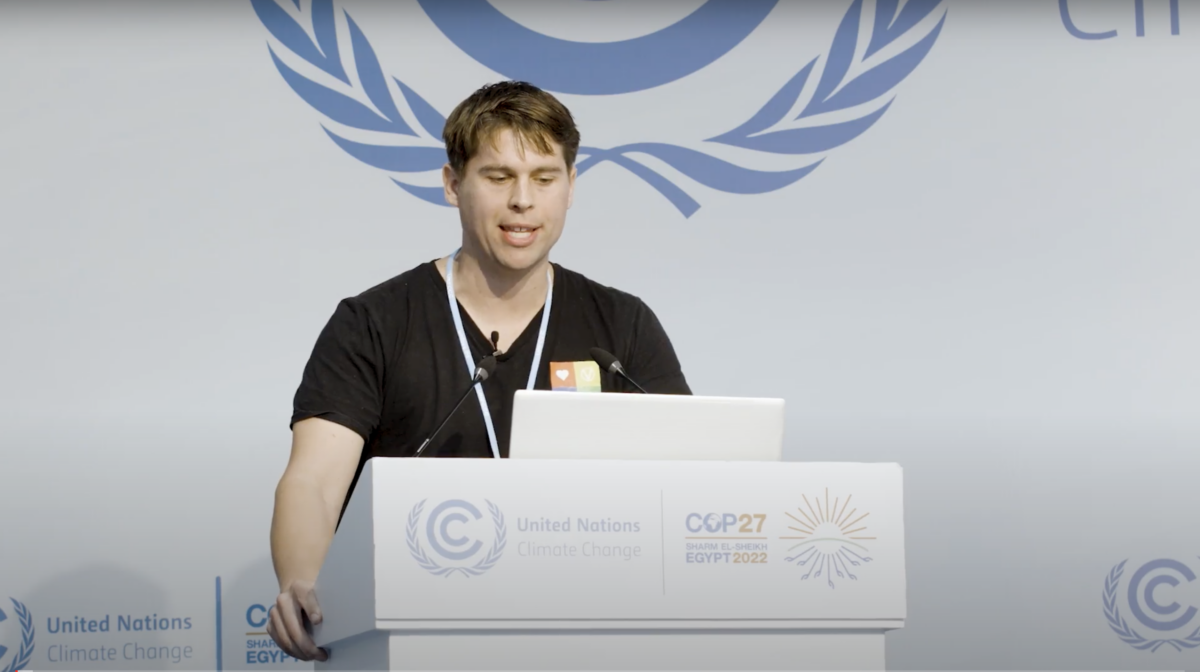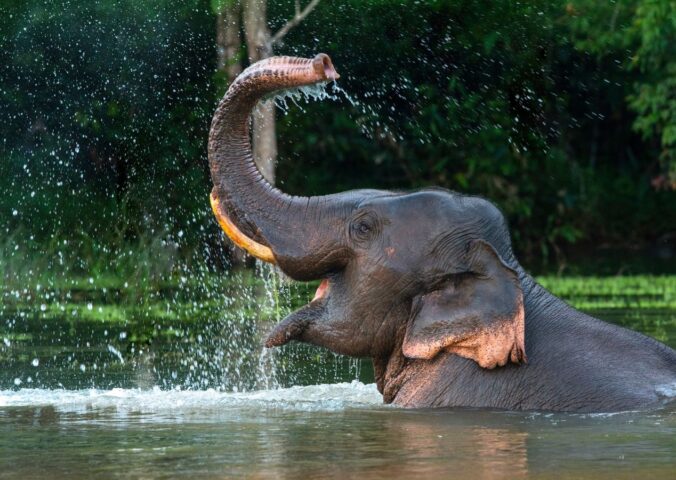Plant Based News (PBN) founder Klaus Mitchell will give a talk on the environmental impact of animal agriculture at COP27.
The 2022 United Nations Climate Change Conference started on Monday, November 6. It is this year taking place in Sharm El Sheikh, Egypt.
The annual event sees world leaders gather together to work on plans to address the climate crisis. It is thought that around 90 heads of state and representatives from more than 190 countries will be in attendance.
Previous COP events have proved controversial due to their omission of discussion of animal agriculture. This is despite the fact that it’s one of the most environmentally destructive industries.
“According to a major report published in Science journal in 2020, even if fossil fuel emissions were eliminated immediately, emissions from our food system alone would make it impossible to limit global warming to the 1.5 degree threshold, and difficult even to limit to 2 degrees,” Mitchell said in a statement.
“So I’m delighted to be speaking at COP27 as it is high time we put the spotlight on this issue if we want any meaningful chance of mitigating the effects of climate change.”
COP and food system change
Mitchell’s talk is coinciding with the introduction of the first ever pavilion on food system change at a COP event.
ProVeg, alongside a number of other vegan-friendly organizations, have this year set up “Food 4 Climate.” The pavilion focuses on the need for world leaders to shift towards a plant-based food system.
Raphael Podselver, Head of UN Policy at ProVeg, told PBN that it signifies a “turning point” in the environmental conversation.
“It’s only the beginning,” he added. “We have not arrived at the point where countries are taking away subsidies from animal agriculture and subsidizing alternative proteins in general, or encouraging dietary shifts and having some sustainable catering. We’re still far away from that so we have a long road to go.”
Animal agriculture’s impact on the planet
Livestock farming is responsible for at least 14.5 percent of global greenhouse gas emissions. This figure has been disputed by some experts, however, who claim it’s much higher.
Cattle farming is responsible for around a third of human-caused methane. This powerful greenhouse gas is around 80 times more warming than CO2 in its first 20 years in the atmosphere. It does, however, have a much shorter half life. This means that cutting it would slow global warming quickly, and give us more time to address carbon. According to a 2021 report by the UN, cutting methane is the “strongest lever” we have to slow global heating.
Animal agriculture has been responsible for around 91 percent of deforestation in the Amazon. It has also been identified as a “primary driver” of biodiversity loss.
Mitchell’s talk will take place on Tuesday, November 15, at COP27 in Sharm El Sheikh. COP27 will run from November 6 – 18..






